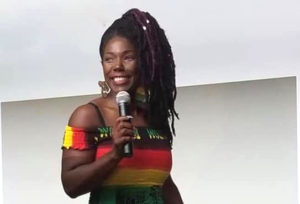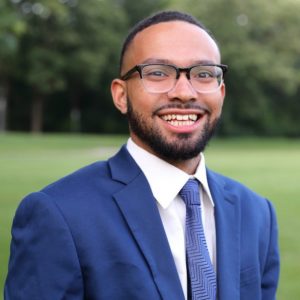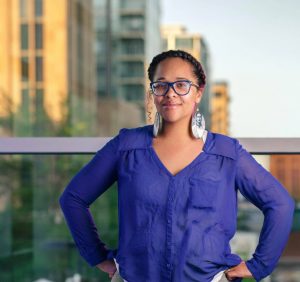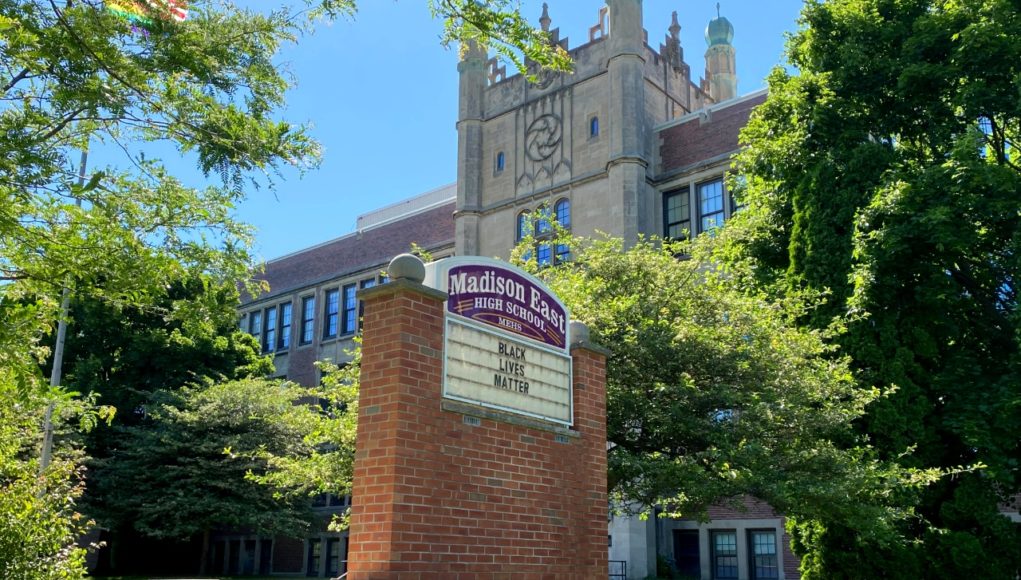The Madison teachers union made a big statement on Sunday when it announced that they’ve changed their position and now back the removal of school resource officers, or SROs, stationed inside each of Madison’s four main high schools.
Madison Teachers Inc. (MTI) Vice President Michael Jones, who is also dean of students at Madison West, tells Madison365 that the decision is something that has been building up to for a while and Sunday’s announcement was the next logical step.

“The last two years we’ve sponsored and endorsed Black Lives Matter week of action at schools in February. Last year’s spate of incidents where teachers were using the N-word made us as a union take a step back and look where our priorities were,” Jones says. “We have a group called MTI Centers where we refocused and repurposed our work towards equity and just doing a lot of surface-level stuff where we have book circles and we look at our own biases. We’ve partnered with Rev. [Alex] Gee to do the Justified Anger history course. We’ve done a lot of different initiatives to really get into how deep the white supremacy is in our system and in ourselves just as a union.
“The last couple of weeks have brought that even into more focus,” he adds, referring to the death of George Floyd and the protests against police that have been taking place across the United States. “I feel comfortable saying that it’s something that we’ve been working towards for a while and it’s something that our members have been asking for and demanding.”
MTI is a member-led organization that represents about 3,000 employees of the Madison Metropolitan School District. Sunday’s statement from MTI President Andy Waity said that the teacher’s union’s shift in their previous position regarding SROs “emphasizes the continuing evolution of our organization” and is “driven by our members and their dedication to anti-racist education and social justice.”
“We see the systematic racism that exists in our current structures and join the voices of our students and our community in calling for dramatic change in how we educate and interact with all of our students, especially those most marginalized in our schools and society,” the statement read. You can read MTI’s entire statement here.
The next step, Jones says, is to push the district leadership on the subject.
“Why is it that we fund our police more than our education system or our jail system? We have a lot of leaders who are doing the work in our community on this topic and we want to bring them to the table; but we don’t want to pay them. We want to hold them at arms’ length,” Jones says. “But this is an all-hands-on-deck moment.
“Now, we have to push the district and the community on this. We can’t go on thinking that just because we change our policies that it will magically address racism and trauma,” Jones adds. “When the marches stop and when we come back to school in the fall, where is the anti-racism work going to be there and is it going to be fully supported? Or is it just going to be lip service?”

For Madison activists who have been fighting the SRO battle for years, this shift in MTI’s stance was good news to hear.
“It’s part of the ripple effect that is taking place across our globe as it relates to different institutions and systems moving towards and supporting the idea that Black Lives Matter and that cops really aren’t the choice for social services and support for children who are in need as a result of traumatic experience in the white supremacy patriarchal context,” Brandi Grayson, founder of Urban Triage, tells Madison365.

School board member Savion Castro tells Madison365 that the MTI announcement is a good starting point. “I commend MTI for changing their position and aligning themselves with the national movement for Black lives and justice,” he says. “While we will do what we can at the local level, we also need our state and federal government to reverse the trend of divesting from public education to investing back into our students and teachers. This is as much a local issue as it is state and national, it’s time for our elected leaders at all levels who claim they are on the side of justice to govern in a just manner.”
School board member Ali Muldrow tells Madison365 that the teacher’s union evolution on the SRO issue has been “profoundly significant.”
“For too long those of us who identify as Black have faced police brutality, racial profiling, and incarceration with little support from people who do not share our identity,” Muldrow says. “So many people have refused to even listen to us or take our experiences with law enforcement seriously.

“The unions evolving position on policing in schools and the unconscionably disproportionate arrests of Black children produced by police in schools is profoundly significant,” she continues. “This is an opportunity to be united at every level of education locally in the interest of all students. Black children have every right to ask all of the adults in their lives what they will do to keep what happened to George Floyd from happening to them? Our teachers have responded with resolve to let their students know they will do the work to keep cops out of their classrooms.“
But you can’t just cut the police officers out of the equation expect everything to be solved, Jones says. There has to be a true commitment.
“When it’s time to actually pay for it – get the supports that we need in here – people want to blanch at it or hem and haw on the referenda or not ask for as much as our education system needs to do this work right,” Jones says. “Otherwise, we’re just going to vacillate right back to this in 10-15 years and there will be a nasty incident at school and people will say, ‘Well, we need cops in schools’ and we’ll be right back to the same place we were in the mid-90s.
“If you want to talk about systemic change, you’re going to have to invest in systemic change. It doesn’t just magically happen,” he adds. “You can remove the police officer and if my student is going through a crisis and they are now in a building where we cut a social worker and we do not have the mental health staff to meet that child’s need, then I would say that that is still perpetuating racism.”
In essence, that is the caveat for the teacher’s union call for the removal of SROs – that this can only occur “when all four high schools are properly staffed with counselors, psychologists, social workers, nurses, and mental health specialists according to the national American Civil Liberties Union (ACLU)-recommended levels.”
“If we remove police officers from our schools, but do not adequately staff those same schools with social workers, nurses, counselors, and psychologists, we are perpetuating harm upon our most vulnerable young people,” Sunday’s MTI statement read.
“Everyone wants to focus on the SRO part but we’ve got to talk about changing how we do our professional development and actually getting community and student and more teaching staff input on the professional development instead of top-down modules,” Jones says.
Jones has been one of the developers of Madison’s “Black Lives Matter Week of Action in Schools” and is the founding co-chair of MTI’s Diversity and Equity Committee. He is a member of the Black Educators Network and has been awarded the Outstanding Educator Award by 100 Black Men of Madison.
“If you talk to any Black person whose family span generations in Madison, they’ve watched the school district have these conversations for decades. For over a century, they’ve talked about ‘How do we work with our Black community?’ Jones says. “We can’t just do another commission. We need to actually put some honest-to-God funding behind it.
“I’ve learned a lot myself from being confronted by people who are pushing me. It’s uncomfortable and doesn’t make me particularly happy,” Jones adds. “But it’s not about my feelings. We have to be ready to not get claps and applause.”
That can be a tough sell for a lot of Madisonians.
“I think we have a lot of people who are willing to make that leap; they just need a push. And that includes myself,” Jones says. “They need the support to actually make mistakes and to be honest and vulnerable with each other.
“What I hear from the Black students that I work with is that they don’t want us to be perfect. They want us to admit when we screw up and talk about how we are going to make it better,” he adds. “That’s a real relationship.”
Jones says that Madison should look at what other districts are doing around the nation.
“If you look at the national level, you can see a lot of unions doing this work already,” he says. “They are demanding more nurses, more mental health supports, more funding towards those things because that’s how you truly get systematic change – actually meeting the kids’ needs as opposed to doing something that makes you feel good because your name is in the headlines.
“I don’t want to pretend like this statement came out of nowhere. This is something that we’ve been working on and discussing and arguing and debating and struggling with and we’re still struggling with it. We’ll struggle with it today; we’ll struggle with it tomorrow. I will struggle with this until the day I day and I expect you to do the same and I expect our kids to do the same,” he adds. “This is part of humanity.”










